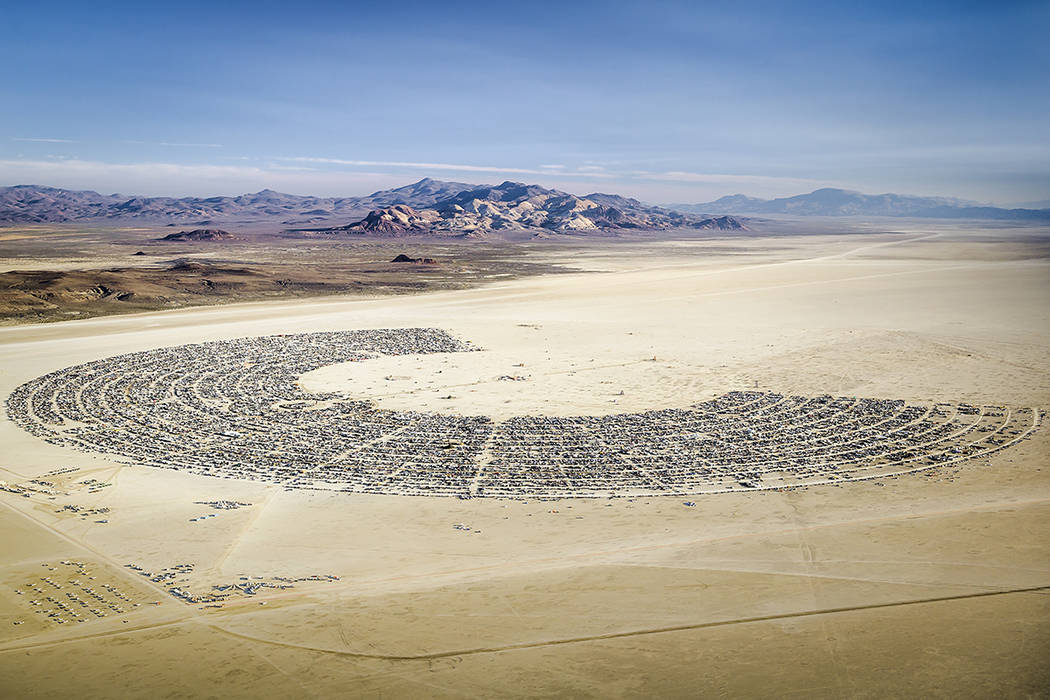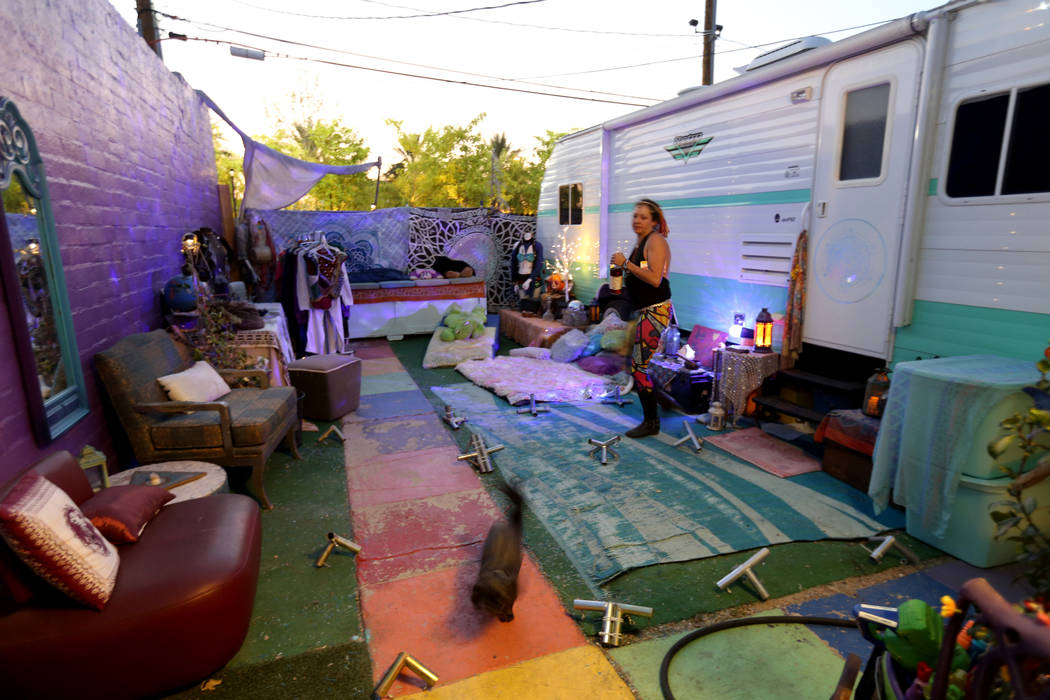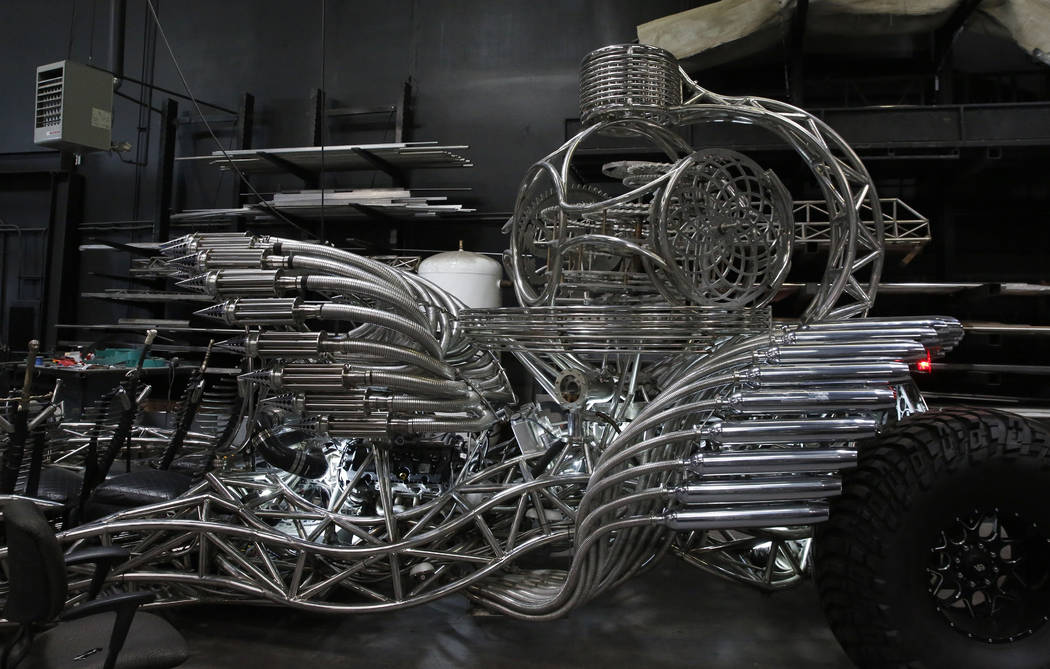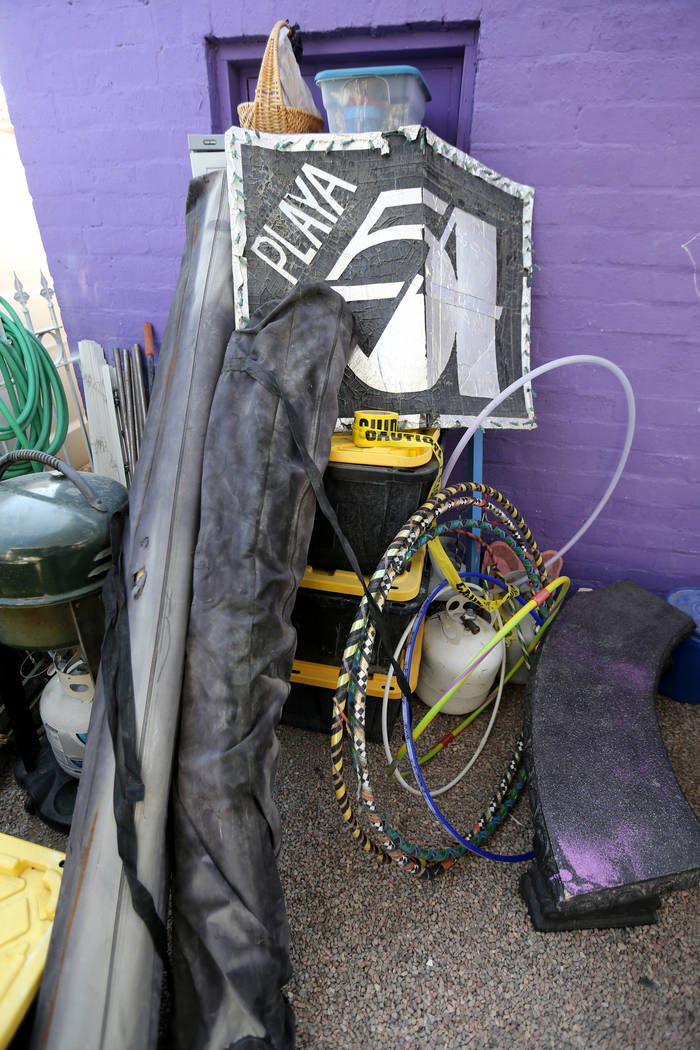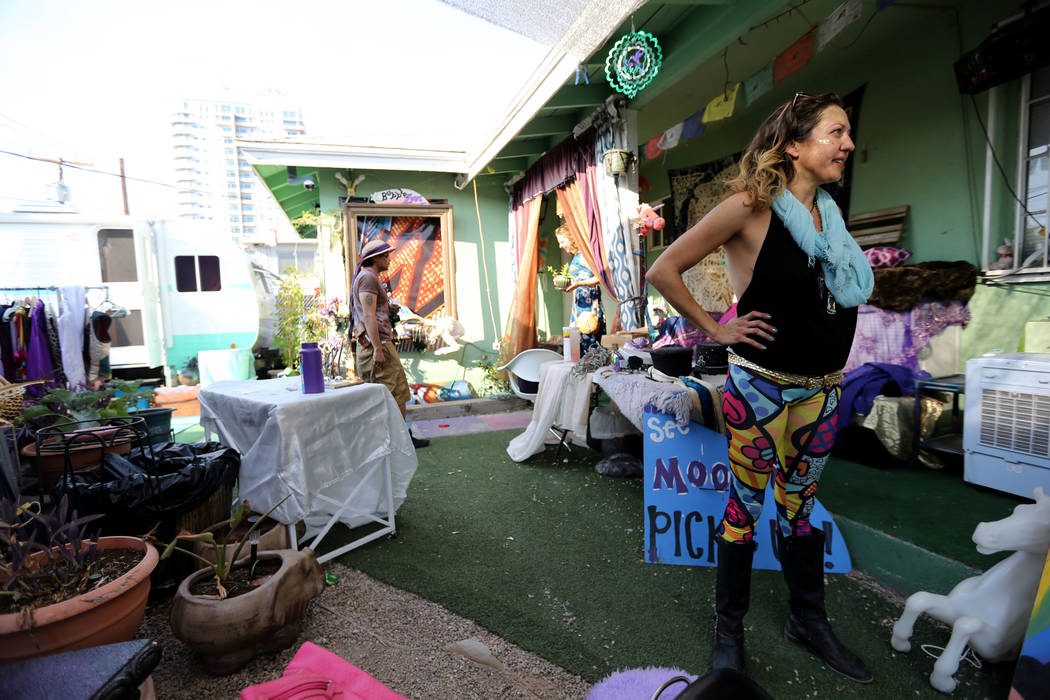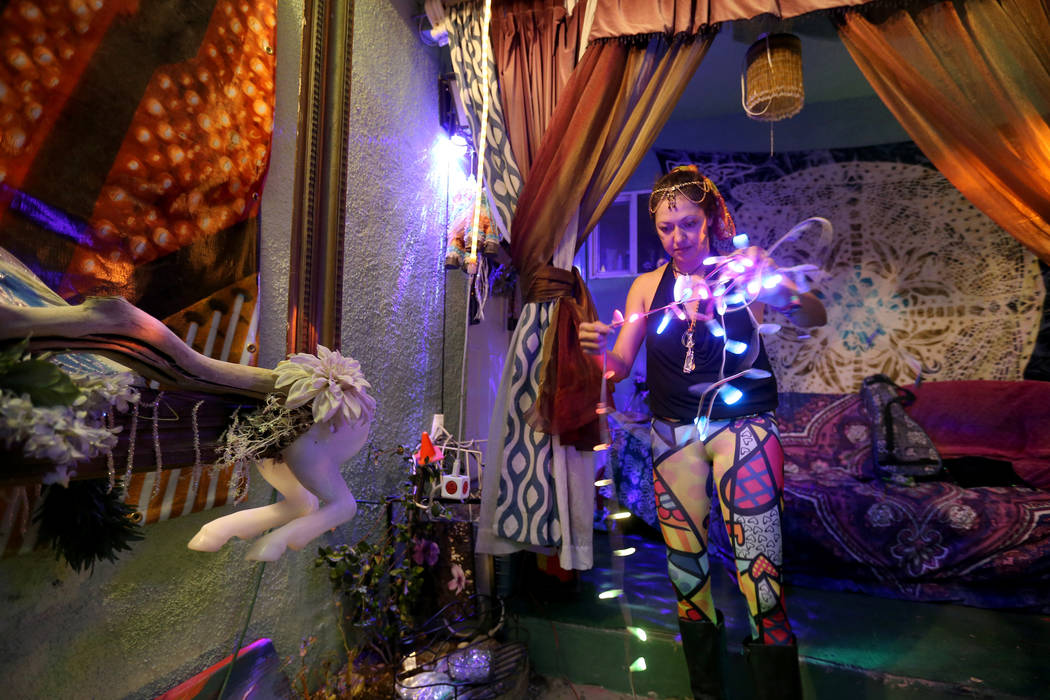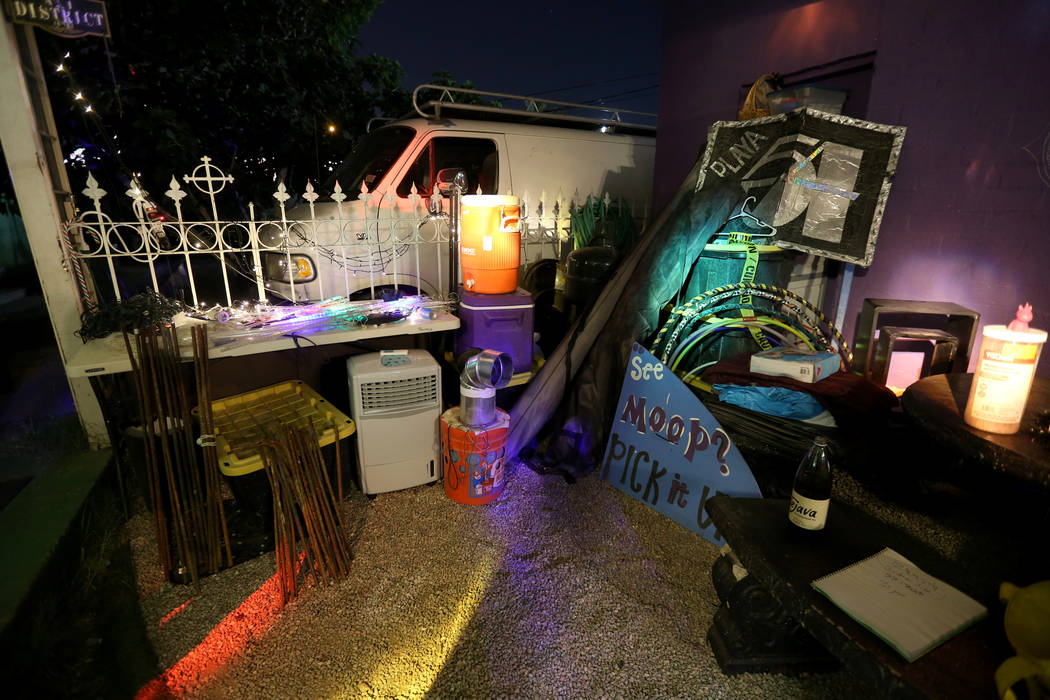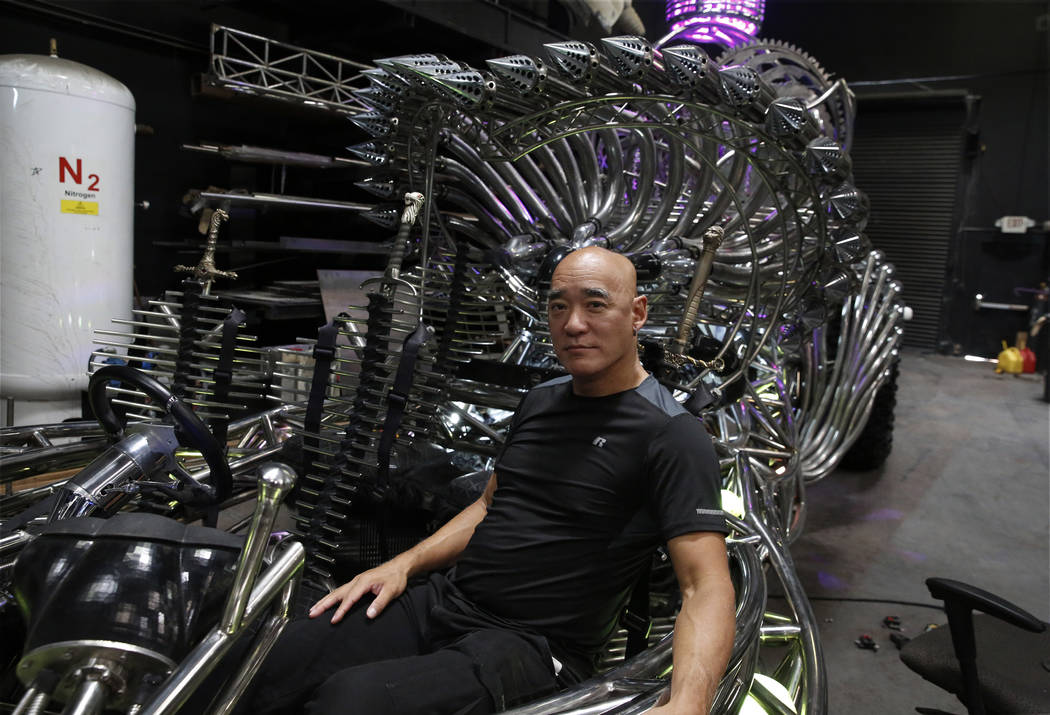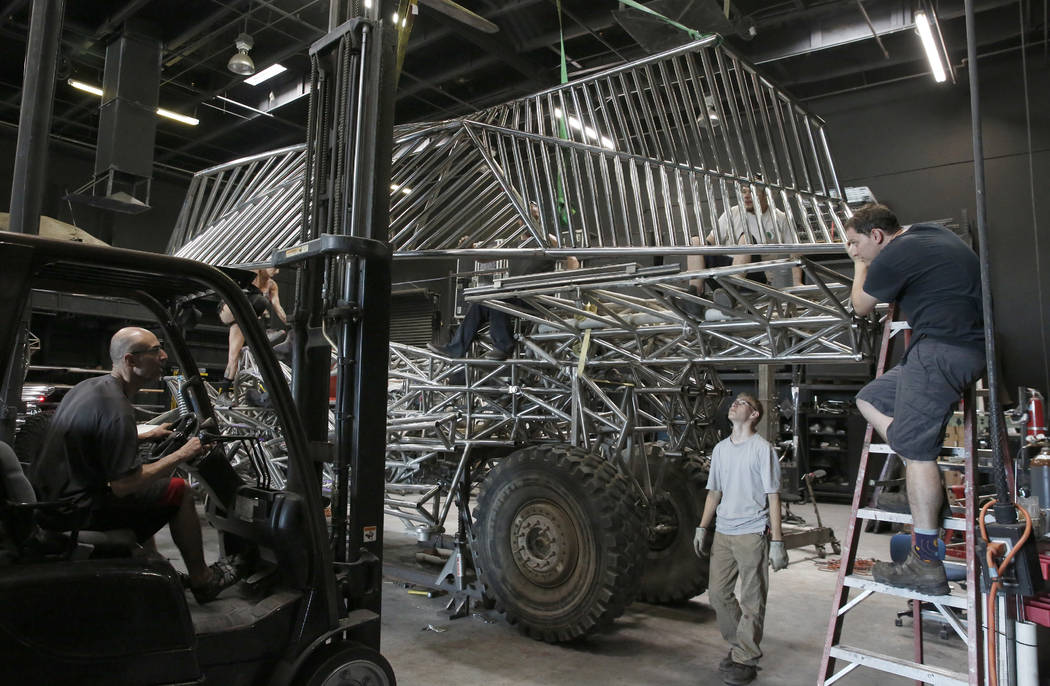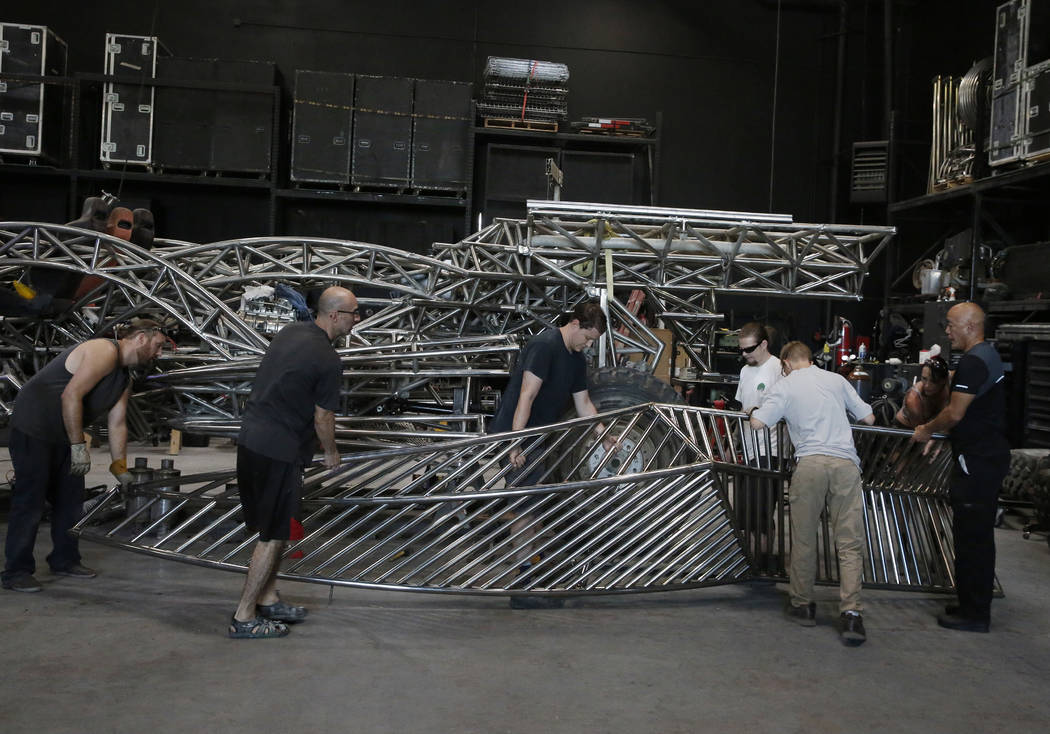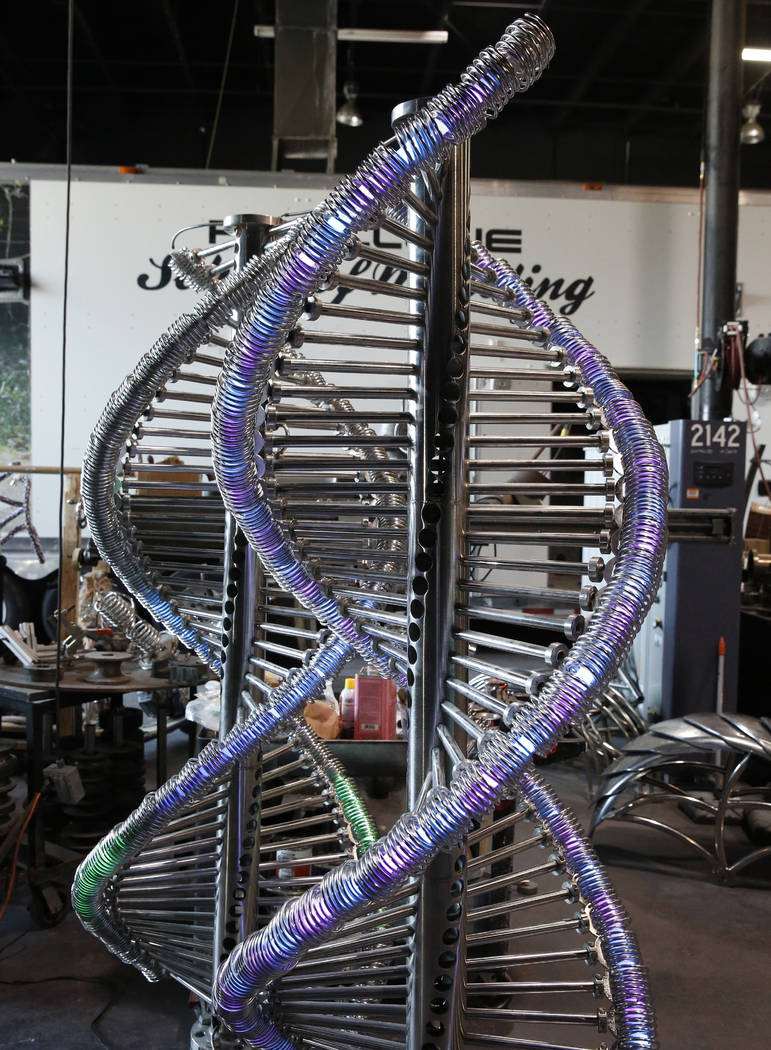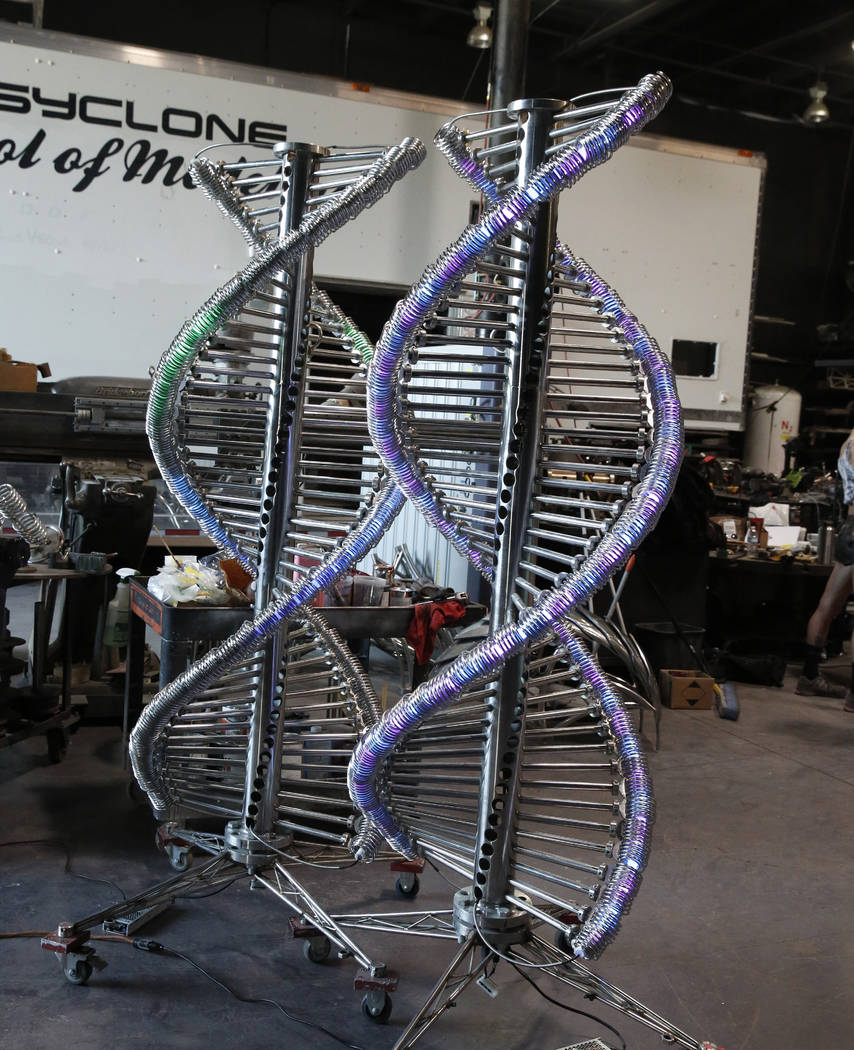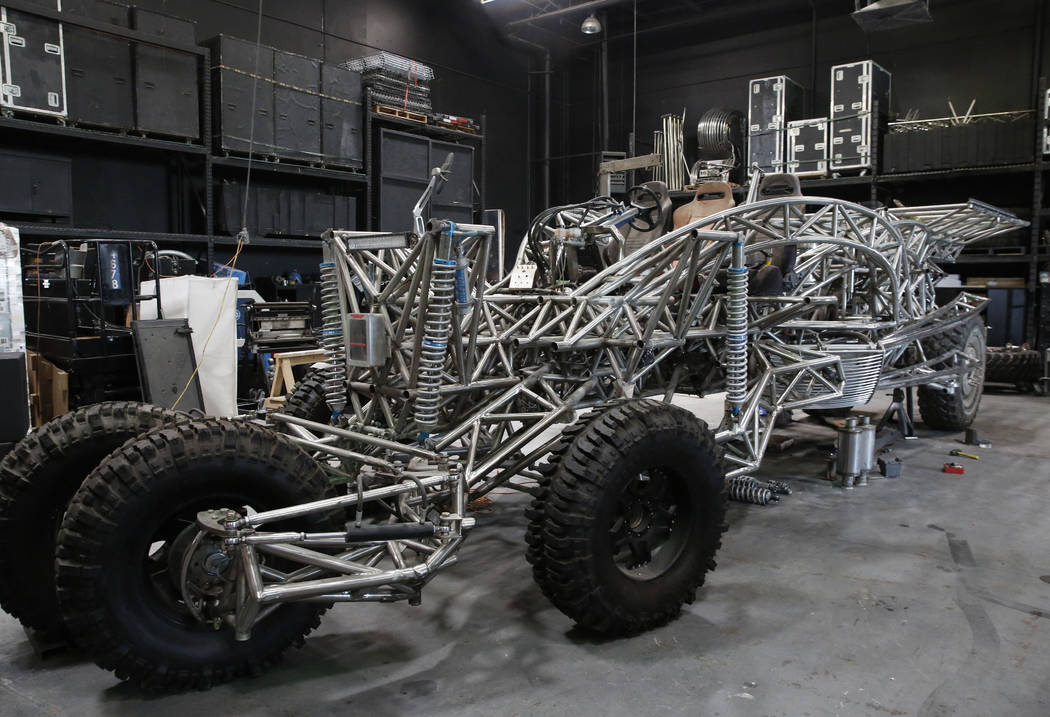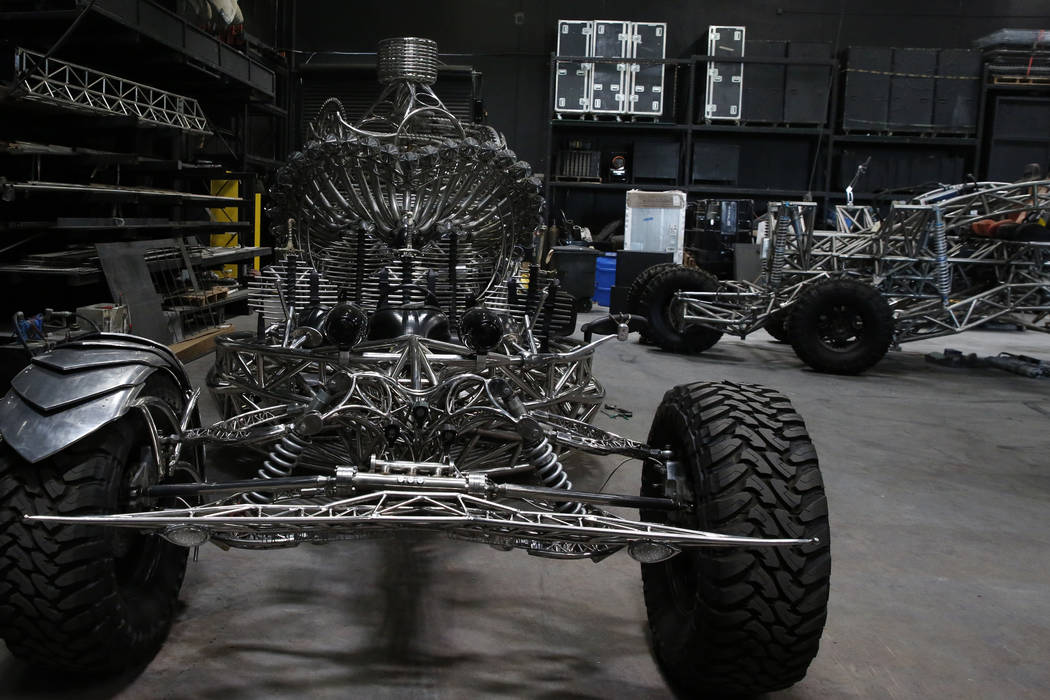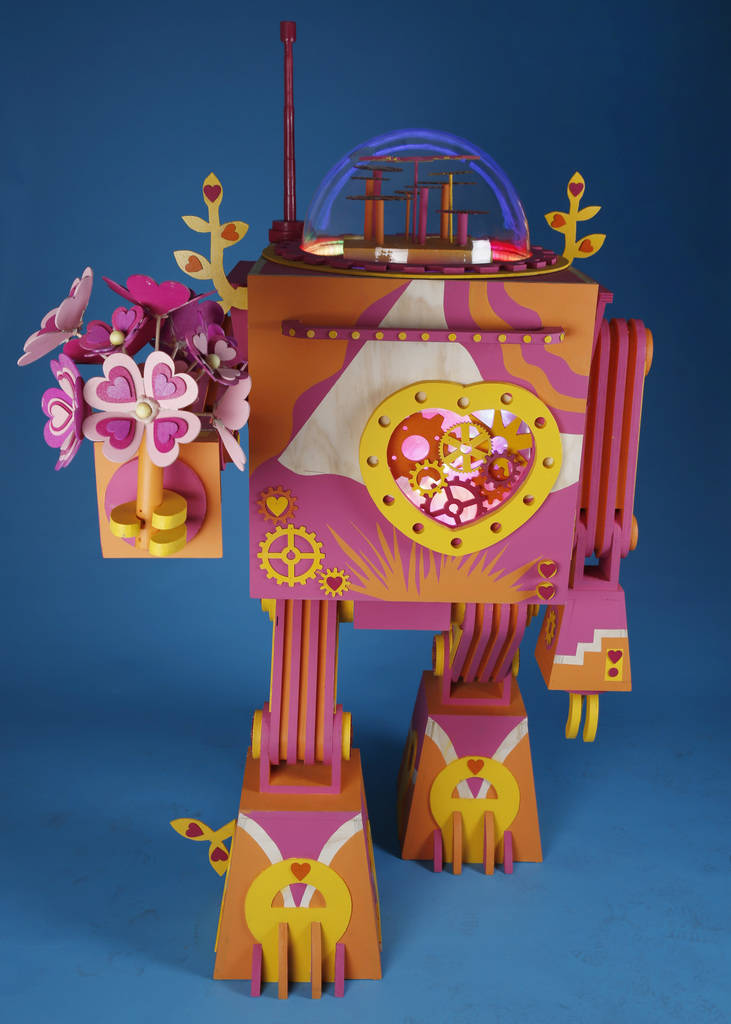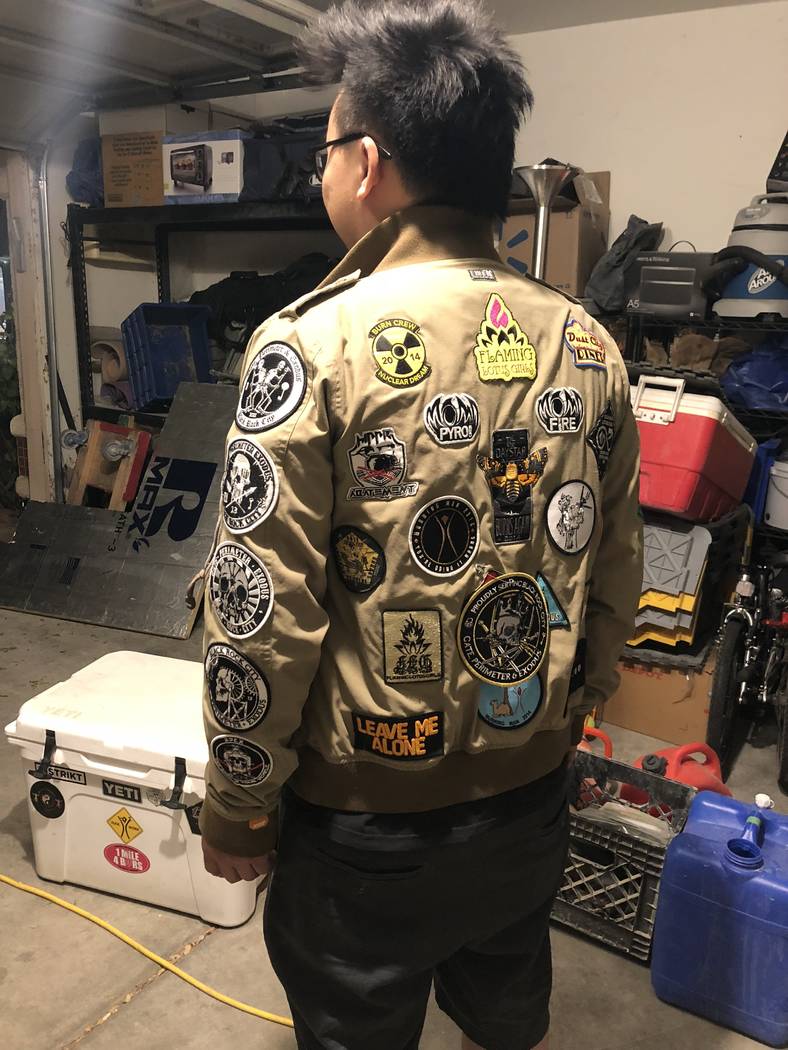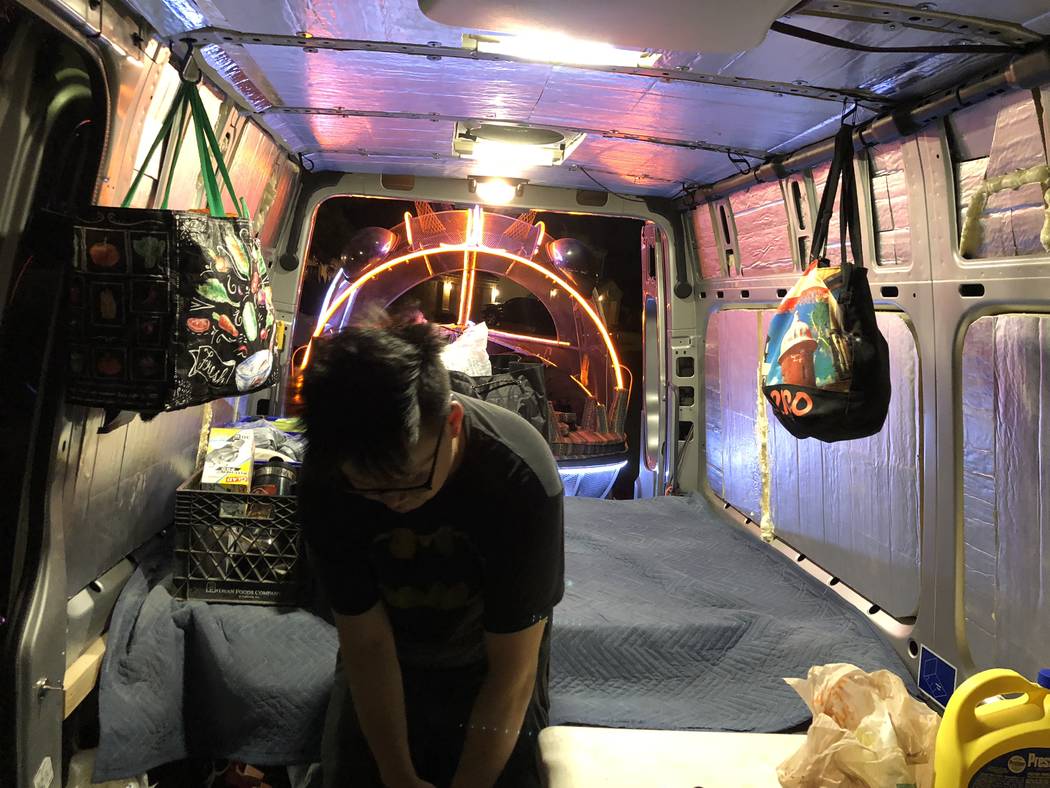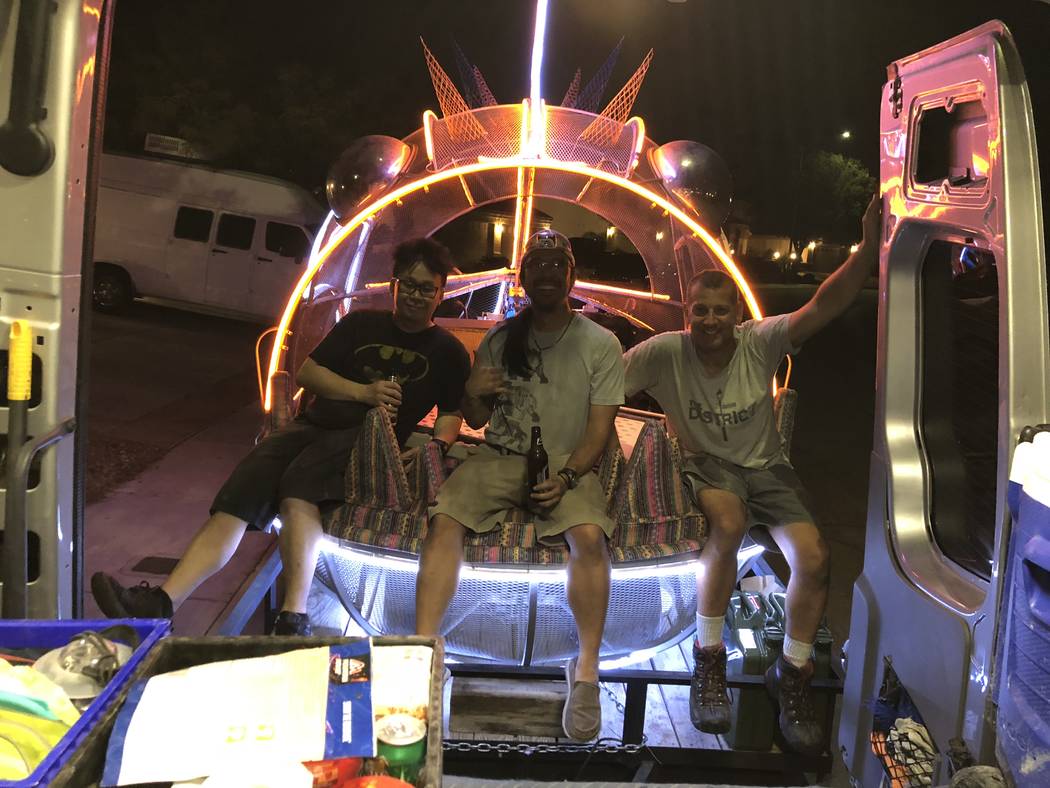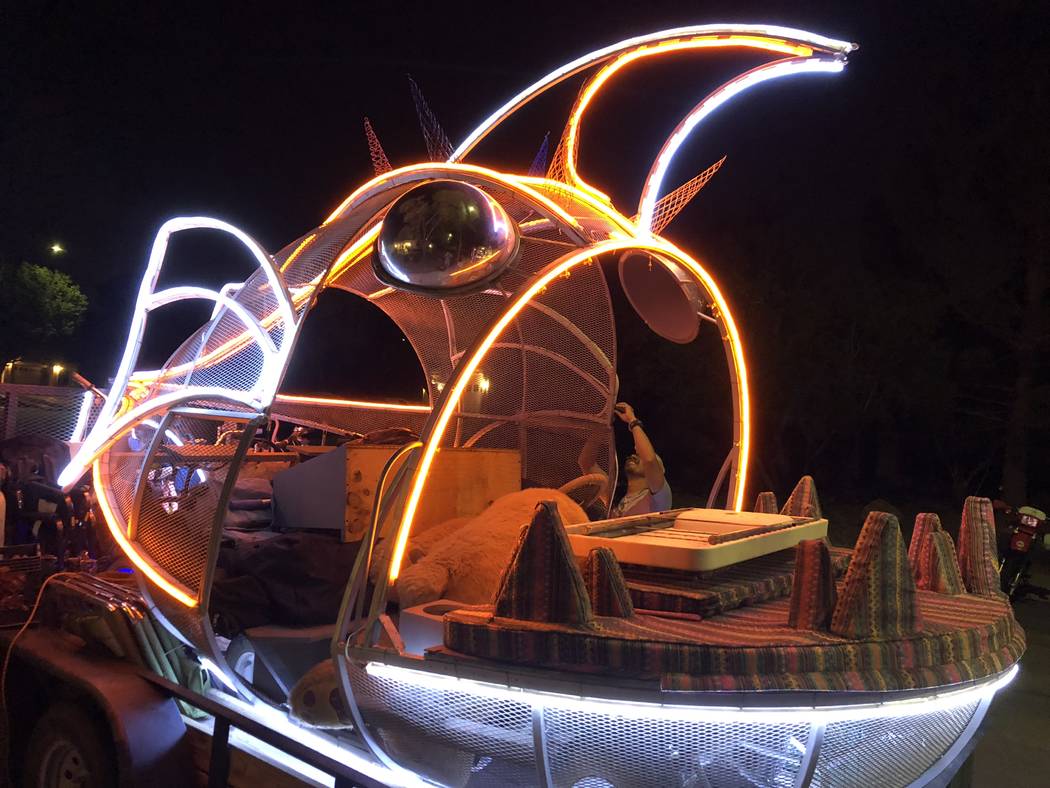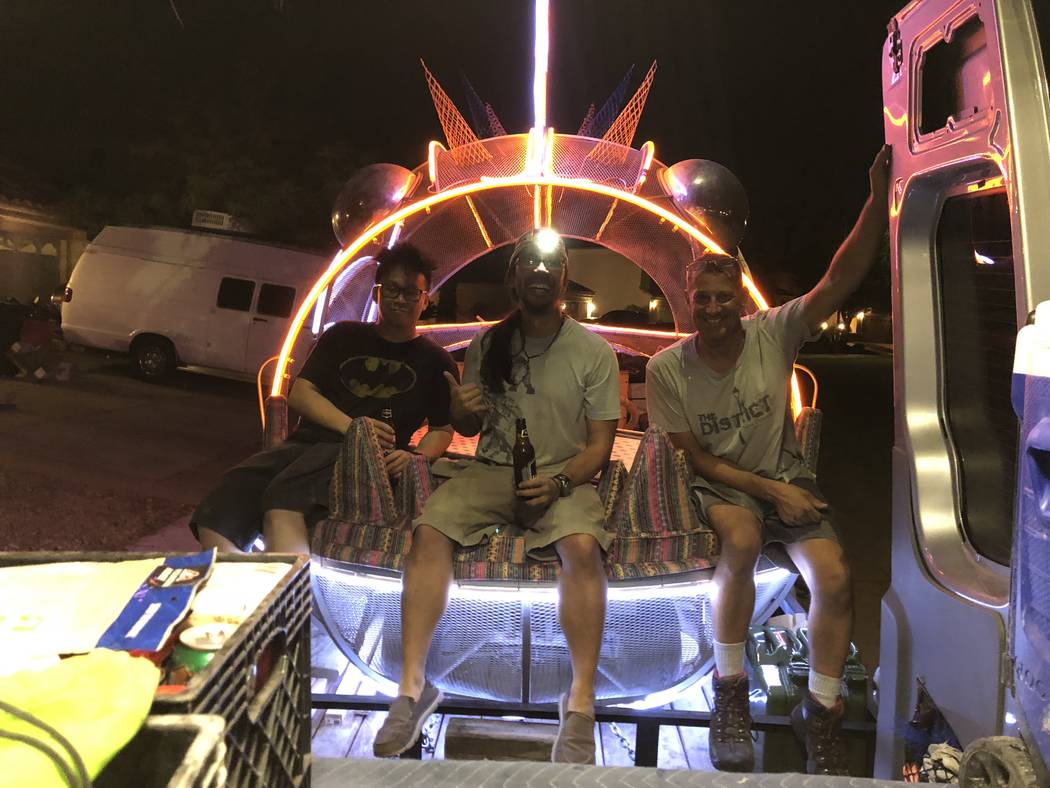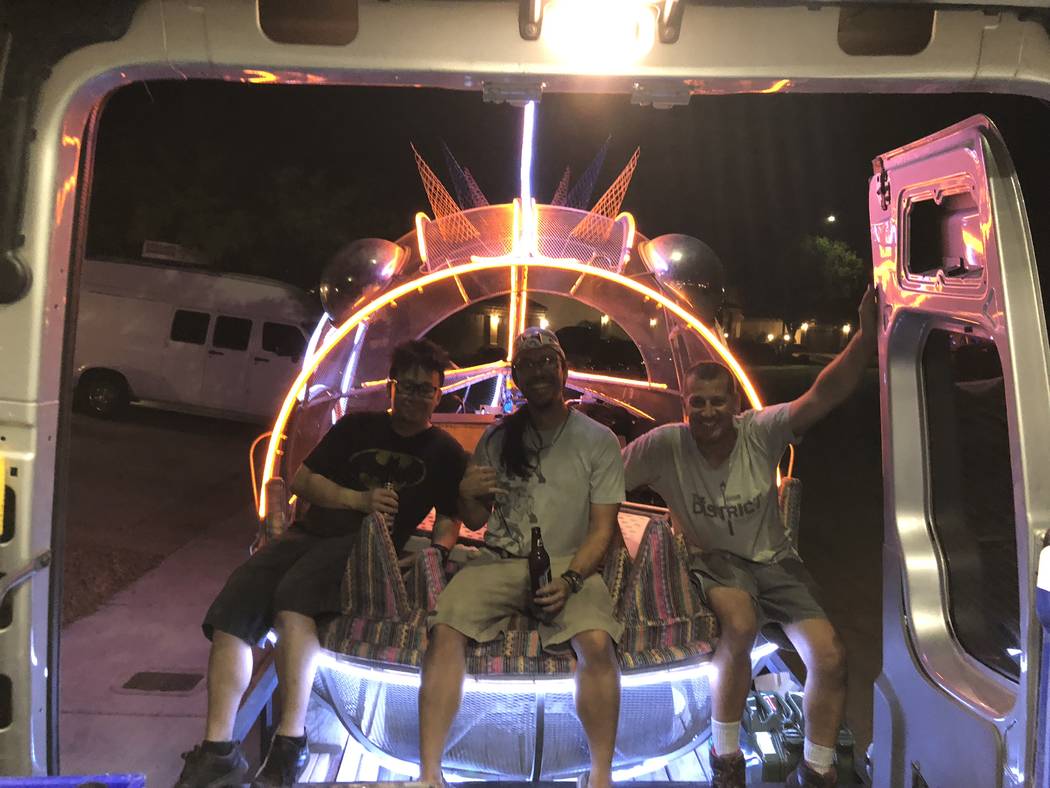For months, Las Vegans have planned, created for Burning Man — PHOTOS
It’s the sixth largest city in Nevada — until Sept. 3. That morning, the post office will close, the airport and DMV will shutter and the residents, their homes and their vehicles will disappear.
For one week every summer, Burning Man rises from the dust as nearly 70,000 people descend on Black Rock Desert, a bleak silt playa about 500 miles northwest of Las Vegas. Unlike most events of its scale, Burning Man describes itself not as a festival, but as a temporary city. It functions on 10 principles, including radical self-reliance, participation and gifting.
The location is hostile. Temperatures include highs in the 80s and lows below 40. Frequent dust storms stir up abrasive silica dust and, often, poorly-staked tents .
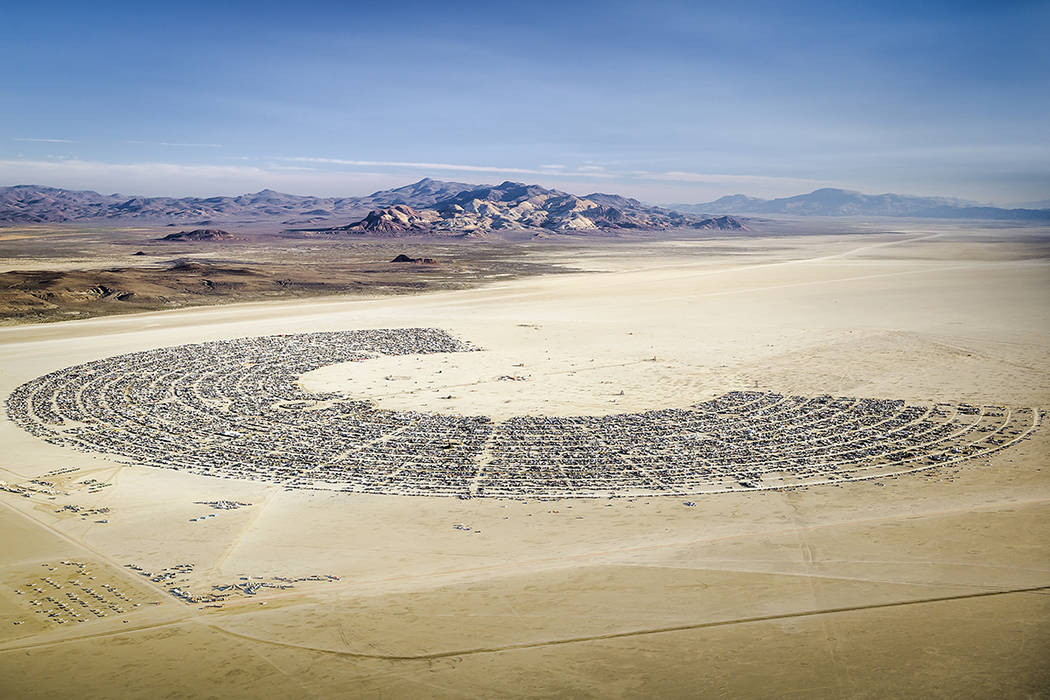
Some attendees have been planning for this year’s Burning Man, which kicks off at 12:01 a.m. on Sunday , since the end of 2017’s incarnation.
Burners in Las Vegas have secured suitable shelter and amassed enough food and water to ensure self-reliance in the desert. Perhaps more importantly, they’ve created gifts — outpourings of their talents and self-expression — to share communally on the playa.
Art cars are more than modes of transportation on the playa
Henry Chang and his team affixed a polygonal railing to the 9-foot high platform of the Flux Capacitor.
The safety rail was the last step in getting the tangle of metal and motor approved by the DMV — the Department of Mutant Vehicles.
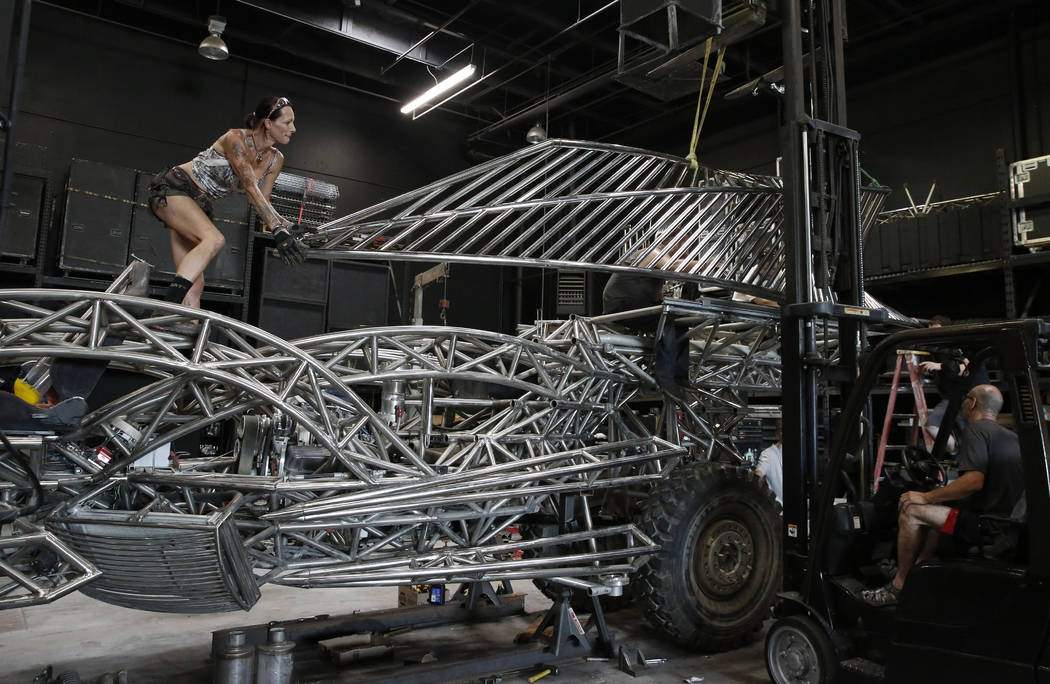
The Flux Capacitor will cruise around the playa at a cool 5 mph. When they’re not oohing and aahing at the futuristic behemoth, burners can flag it down for a ride. The platform will hold 20 people.
The Flux Capacitor is one of three art cars that Chang is bringing back to Burning Man.
Chang spent the past year upgrading Mister Fusion, his first art car, and Valyrian Steel, a “Game of Thrones”-inspired web of winding metal with metallic and LED additions.
Art cars are an integral component of the event and Chang likes to draw on the imagination he discovers on the playa. “I try to do stuff people find compelling, that hasn’t been done before,” he says.
In addition to the three art cars, Chang will add two structures to his Mirage Garage theme camp — metallic strands of DNA that light up with vibrant LED after dark.
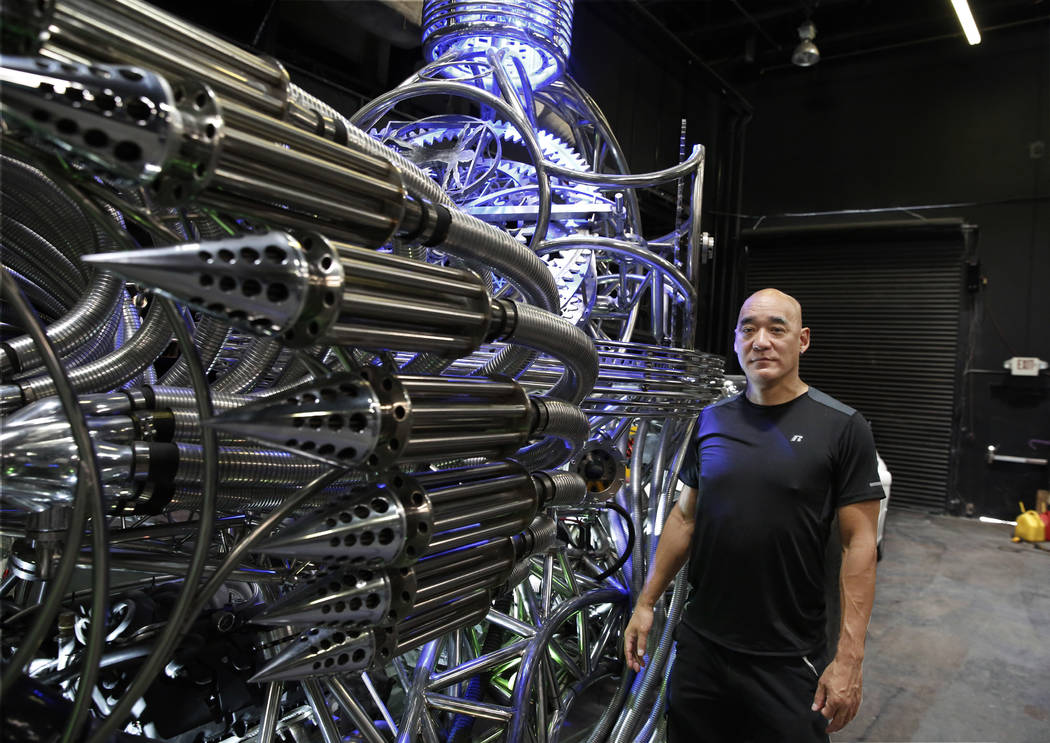
Discovering things he wouldn’t otherwise see is the appeal of Burning Man, Chang says. “There’s no professional entertainment. The ticket buyers are expected to entertain each other. Burning Man just provides the canvas.”
Tent, clothes and food packed; burners provide the rest
Burning Man’s 7-square mile footprint resembles a clock, with camps set up from 2 to 10 and the Man standing at the center. Large-scale art projects and the buzzing of art cars occupy the space from 10 to 2.
The more elaborate theme camps apply for placement nearest to the Man. Burners without a theme camp make up the circle’s perimeter.
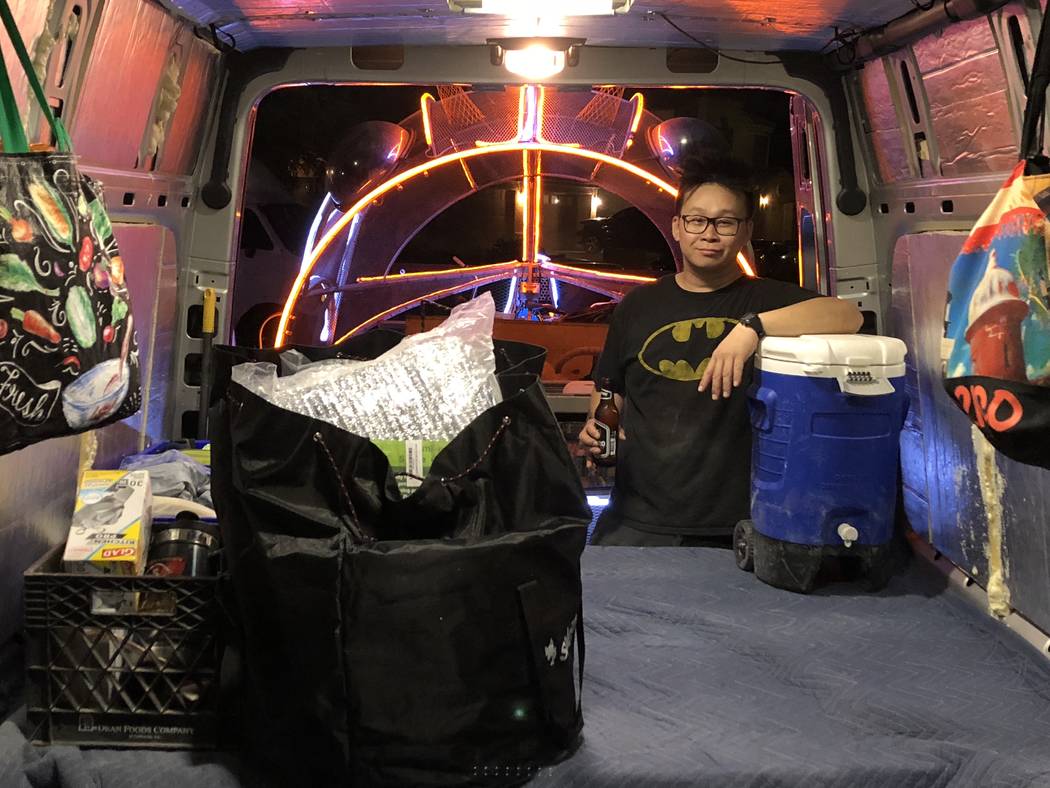
This is where Gary Tan will camp.
For his ninth Burning Man, Tan has packing down. He’ll load his SUV with a tent, a tarp for shade, a bike, two changes of clothes per day, plenty of socks, food and water and not much else.
Drawing on his experience as kitchen manager at The Phoenix, Tan has prepared meals such as chicken curry and braised pork belly, which are frozen and stored in dry ice. He’ll find the rest of his meals on the playa.
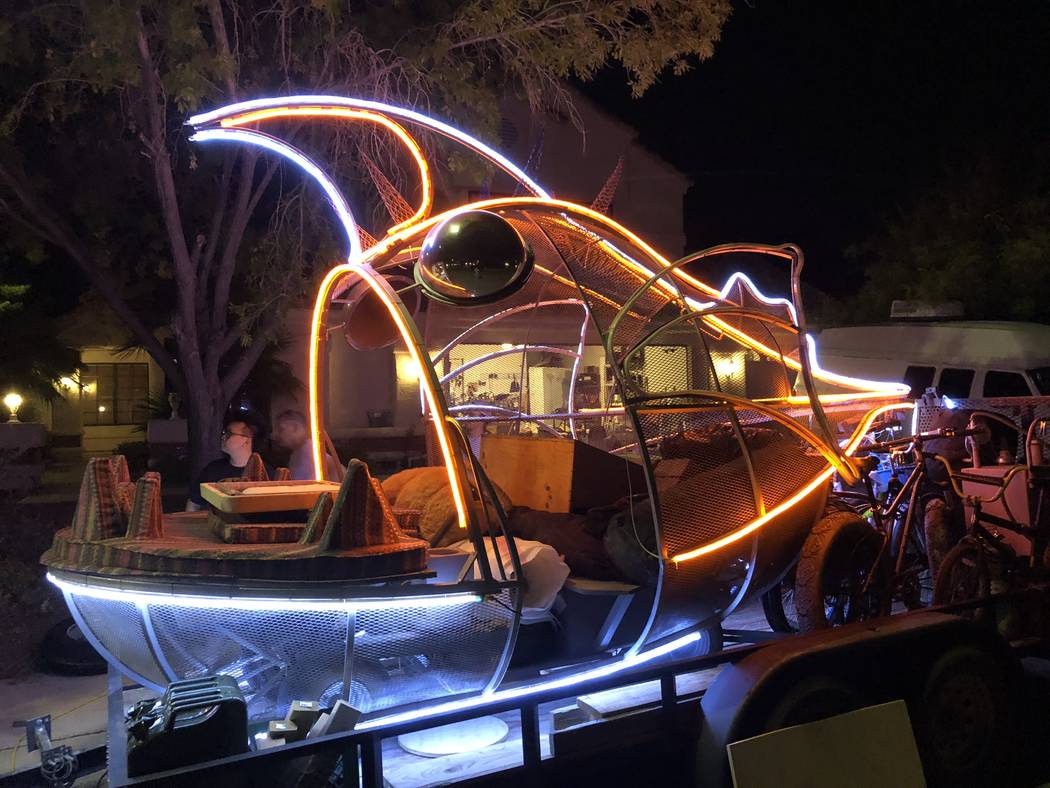
“You always find a camp offering food. Or you’re with friends and they invite you to stay for dinner,” Tan says. “I snack throughout the day.”
Like most years, Tan will volunteer at the gate on Burning Man’s opening day. He’ll check tickets and search vehicles for stowaways and prohibited items such as firearms or anything deemed too difficult to clean up.
“It’s fun to work the gate. And it’s a way to give back to Burning Man, to help the community. Plus, I get a lot of gifts,” Tan says.
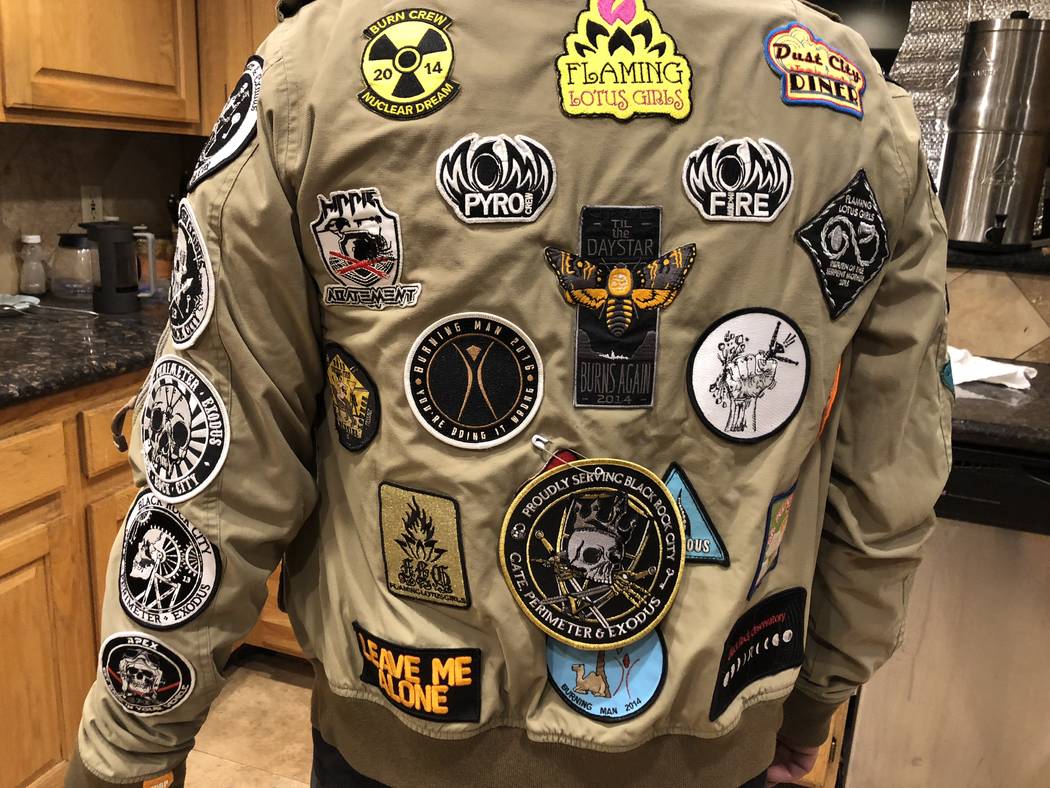
Tan’s favorite gifts are patches, which he stitches onto a jacket. Most years, he designs his own to give away. This year, he’s chipping in on a friend’s design.
“Each year I learn something new, how to be more accepting, finding new boundaries. The patches represent that each year.”
Playa 54 camp organizer plans bar, shower for burners
Michelle Lincoln’s costumes are selected, her unicorn scooter has working LEDs, the disco ball keychains are primed for gifting and the poles of her dance floor glitter with rainbow colors.
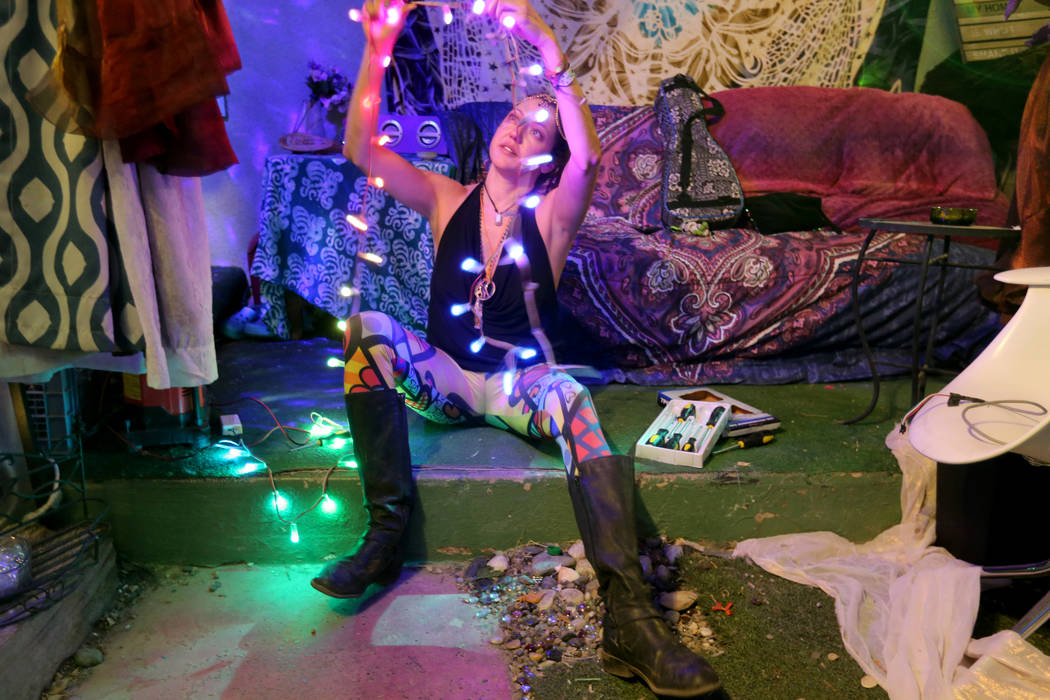
In her sixth year attending, Lincoln — better known to her friends as Pouncy — is co-organizing the theme camp Playa 54.
“Theme camps create spaces and host events that create the environment of Burning Man,” Lincoln says.
Playa 54 will offer a shaded lounge with inflatable furniture by day and music-themed dance parties after dark. Burning Man’s gifting economy means that no money changes hands throughout the event. The camp’s Bloody Mary Wednesdays and Vodka Lemonade Thursdays will be gifts to whomever shows up with a cup.
The 30 people in Lincoln’s camp each pay $125, which pays for materials and activities that Playa 54 will provide throughout the week and gas for the truck that will make the 12-hour drive to and from the event. Lincoln is hauling far too much equipment to join the privileged few who fly directly to the Burning Man airport.
Lincoln’s camp will offer a precious and challenging commodity: a shower. Burning Man’s Leave No Trace principle means that all the gray water that isn’t evaporated needs to go home with campers.
Before leaving the playa on Sept. 3, Lincoln will uphold a personal tradition.
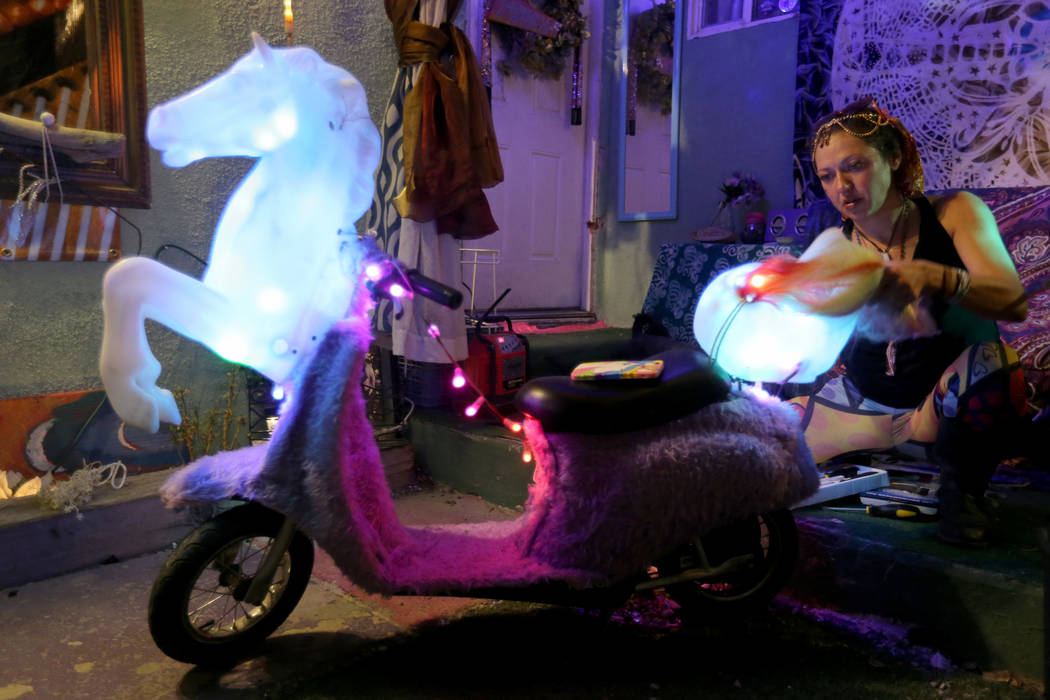
My dad came to Burning Man once when I built a large art project. I visit the post office and send him a postcard every year,” Lincoln says.
Robot rises in two weeks
Nicole Balestrere wasn’t supposed to go to Burning Man this year.
“I thought this year I’d take a break. As much as I enjoy it, it’s a lot of work. But Burning Man had other plans for me.”
For the past eight years, Balestrere has organized Camp Unicorn Genocide, a dozen people who live, eat and run the camp’s bar. This year, she planned to run

But three weeks ago, she woke up to an email from the event organizers that included two tickets to Burning Man and a $1,000 stipend for an art installment.
The design she had submitted in April for this year’s “I, Robot” theme was selected as one of 12 installations that would stand with the Man.
She thought about turning the opportunity down.
“Then I thought, someone is going to pay me to build my art piece,” Balestrere says. “How lucky am I?”
She and a friend, Michael Tedeschi, built the robot,
Xochipilli — named for the Aztec goddess of art, dance and song — in two weeks. Balestrere says her design reflects the joy represented by Burning Man. The robot is made up of interlocking segments she’ll assemble on the Man’s platform.
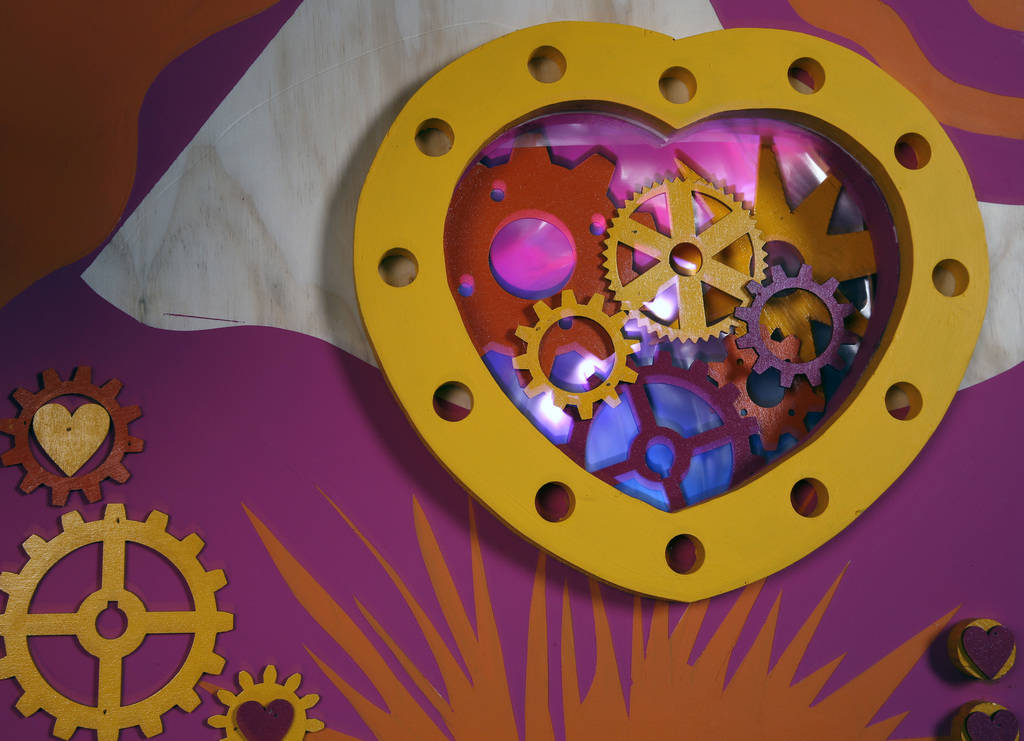
Balestrere won’t need to bother hauling Xochipilli home. It will burn with the others and the Man at the end of the event.
On Tuesday morning, after running the Burning Man 50K, she’ll drive back to Vegas and catch her Wednesday morning flight to Zurich.
Burning Man history
In 1986, friends Larry Harvey and Jeremy James constructed a wooden man and burned him on the summer solstice on Baker Beach, San Francisco.
The blaze attracted a crowd of bystanders and in effect created the first Burning Man community.
In the fifth year of the tradition, police prohibited the bonfire and inspired the move to Black Rock Desert, an endeavor in conjunction with San Francisco’s Cacophony Society.
In 1991, the Man had grown from eight to 40 feet tall and the crowd had grown to 250 people. For the first time, attendance required a ticket for $15 and the Bureau of Land Management required a permit for land use.
Since then, the event has been held annually, culminating on Labor Day weekend with the Man, now over 100 feet tall, burning on Saturday evening.
While speculation abounds as to what the Man represents, Harvey, who died in April, refused to comment. “He preferred that we understand it as a blank canvas onto which to project our own thoughts and feelings, a ritual outside of context and unfettered by explanation,” reads his obituary in the Burning Man Journal.
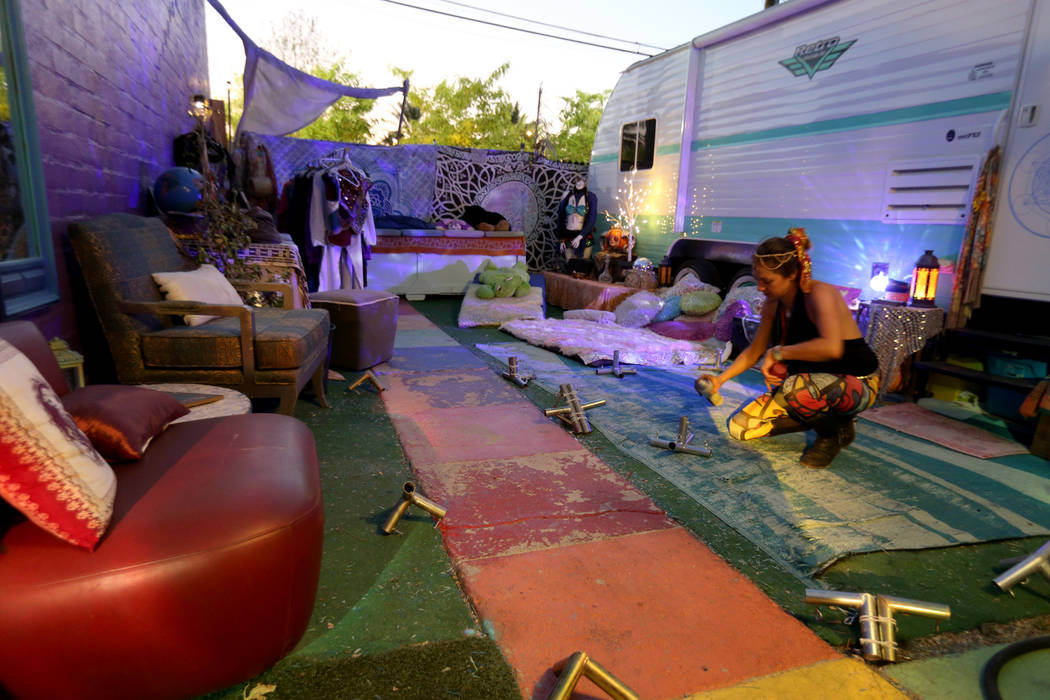
In 2000, the first Temple was erected at Burning Man. Annually, burners visit and inscribe personal messages on the temple walls before it is burned on Sunday night. — burningman.org
Contact Janna Karel at jkarel@reviewjournal.com. Follow @jannainprogress on Twitter.



